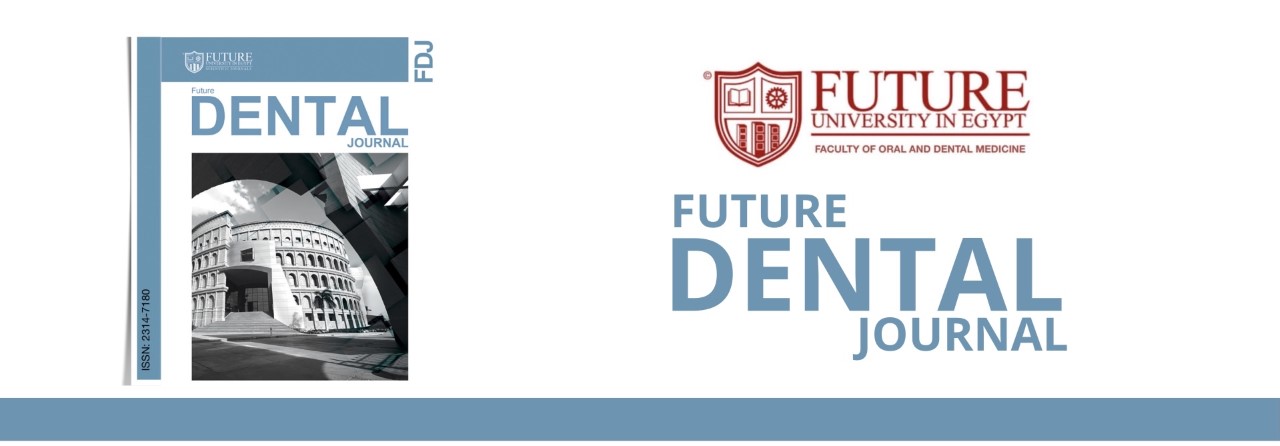
ORCID
0000-0002-0593-1686
Abstract
Objective: The aim of this study was to investigate the effect of different PEEK veneering materials, as well as thermocycling on the color difference (ΔE) and the translucency parameter (TP) of modified PEEK veneered restorations.
Materials and Methods: Thirty disc shaped specimens of veneered BioHPP (1.5 mm X 12 mm) were randomly divided into three groups (n=10) based on the type of the veneering material. Group (A): Discs veneered with CAD milled Lithium Disilicate, group (B): Discs veneered with pre-cured milled composite, and group (C): Discs veneered with conventional light cured composite. CIELab values were calculated for all specimens over white and black backgrounds using a laboratory spectrophotometer and then (ΔE) and (TP) were calculated. Specimens were subjected to thermal cycling, after which the same procedure for calculating (ΔE) and (TP) was repeated.
Results: Repeated measures ANOVA showed that both the veneering material, and thermocycling had a statistically significant effect on mean ΔE, and on (TP) (P-value
Conclusions: All veneering techniques rendered an amount of color difference that was clinically unacceptable, as well as displaying much lower translucency levels than that of natural enamel and dentine.
Recommended Citation
Abdulmaguied MH, Morsi TS, Wahba MM, Katamish H. Evaluation of Color Difference and Translucency of Modified PEEK Restorations Veneered with Different Veneering Materials Before and After Thermal Cycling. Future Dental Journal. 2023; 8(2):125-130. doi: https://doi.org/10.54623/fdj.8029.
DOI
https://doi.org/10.54623/fdj.8029

